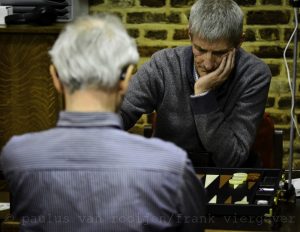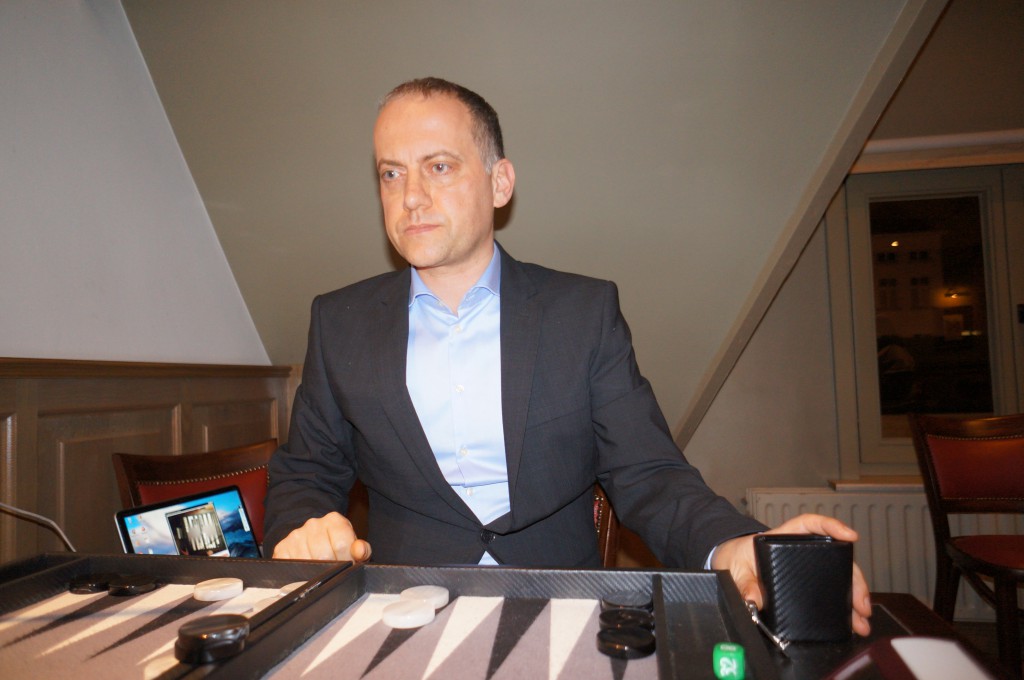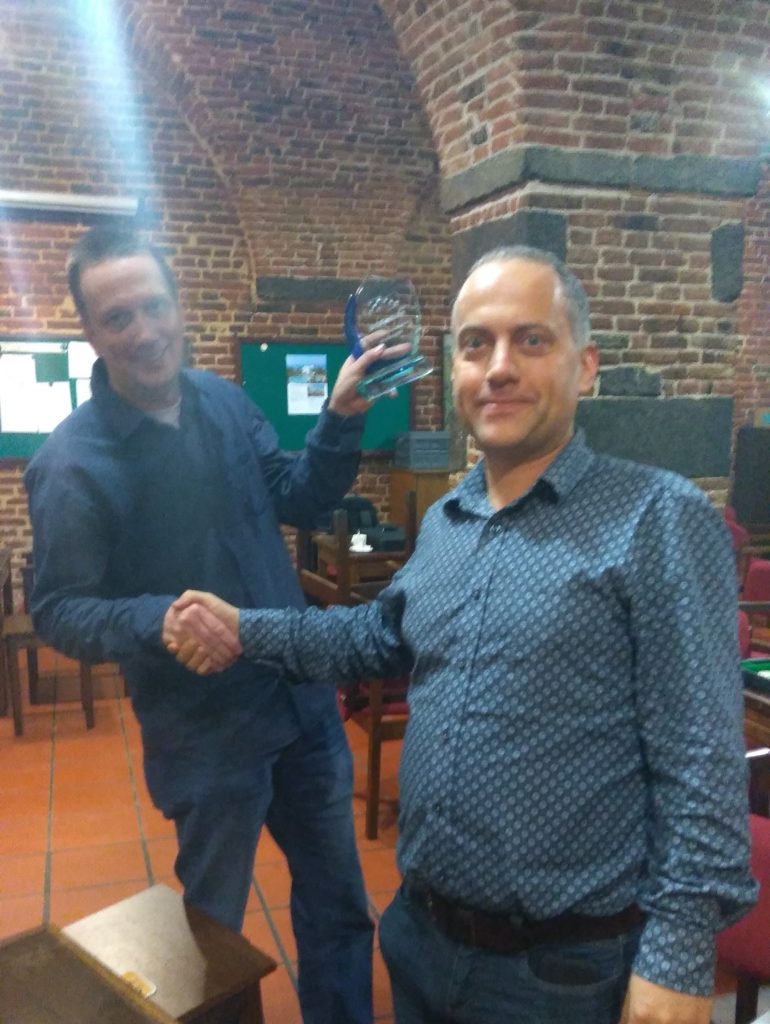The BMS Committee (Geert Van der Stricht, Johan Huyck, Paulus Van Rooijen) announce that two major changes will be implemented. Johan Huyck, who is responsible for the BMS Grading Table (registering applications, re-analysing XG-files, processing the data, updating the GT, etc.) explains :
Johan: On 1 February 2019 , the Rolling EP was reduced from 750 to 600. This means that the published overall PR of a player is now based on his performances in the most recent 600 matchpoints.
M: Why this adjustment?
Johan: Well, 600 is still a lot of course. It is the equivalent of forty-seven 13-point matches. This relatively high number is needed to reduce volatility and maximise reliability. On the other hand, it gives players the opportunity to shed a bad PR a little more quickly than before. With 750 EP, it could take a player one or two years to leave a bad result behind, a prospect which could potentially have a demotivating effect. With 600 EP a moderately active BMS player should be able to shed a horrendous PR within 10 to 12 months.
M: Makes sense. Has this adjustment caused major changes on the BMS GT?
Johan: Not at all. The impact of this recalibration has been fractional. The maximum deviation has been 0,10 PR.
M: OK. What is the second change?
Johan: Well, as of 1 April 2019 the BMS Committee will charge a processing fee for BMS GT matches.
M: Fair enough. How will that work?
Johan: First of all, there will be no fee for BIC and Four Cubes matches, nor for matches played for the national team at international team events. For other matches, there will be a 2€ fee, regardless of match length. If both players are applicants they would each have to pay 1€ per match.
M: Sounds very reasonable. So, if I play a Master Series of six 11-point matches against Geert, we would each have to pay a 6€ processing fee?
Johan: Correct. Let me give a couple of other examples. Let us say that Player A plays a tournament abroad and applies for BMS validation [known as a Master Series 2]. If he then plays four 13-pointers in the Main, three 9-pointers in the Consolation, and two 5-pointers in the Last Chance, his fee would be 18€.
Sometimes, however, there can be duplication. If players A, B and C apply for BMS validation for the Gent Open (seven 7-point matches), this does not automatically mean that each player has to pay 14€. If, for instance, A has a bye, and A and B have a mutual encounter (= duplication), then the fees would be: A 11€, B 13€ and C 14€.
In case of a BMS event, the Xmas Trophy for instance, ALL matches are duplicated since ALL the participants are BMS applicants. This would mean that the fee would be 1€ per player per match or 5€ , since the event consists of five 9-point matches.
M: And what with BMS GT players who encounter a BMS applicant during an event, but have not filed an application themselves?
Johan: They do not have to pay, of course. Only the applicants have to cough up the fee.
M: Right. And how are players supposed to know what they owe and when to pay?
Johan: To keep it simple, players will not be charged per event, but over a 6-month period. I will send them a mail with an overview of the costs and expect them to pay one way or another within a reasonable timeframe.
M: Sounds good. Thanks for the information, Johan. And for the all the time and effort you put into this.














